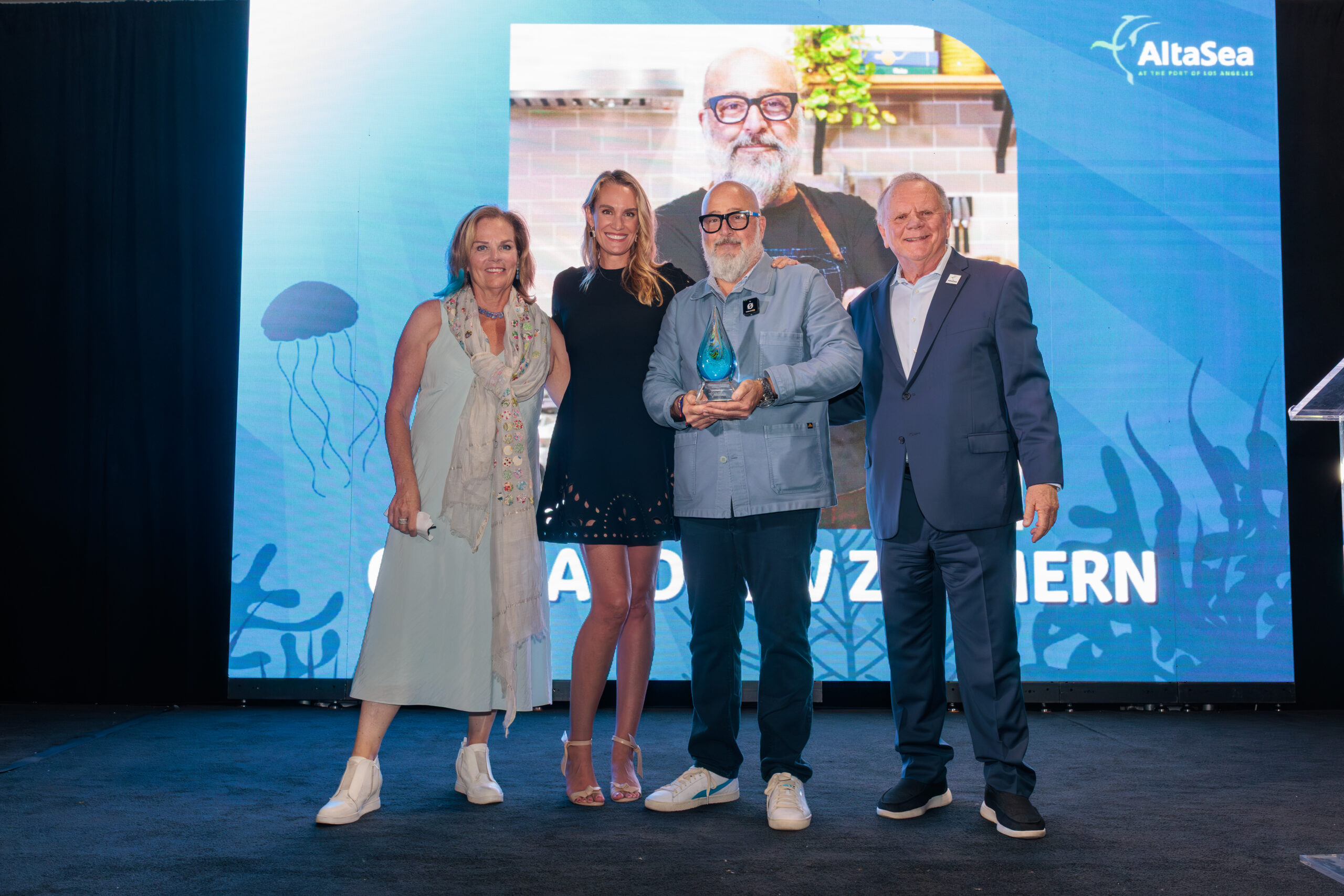Celebrity Chef Andrew Zimmern Honored at Blue Hour 2025
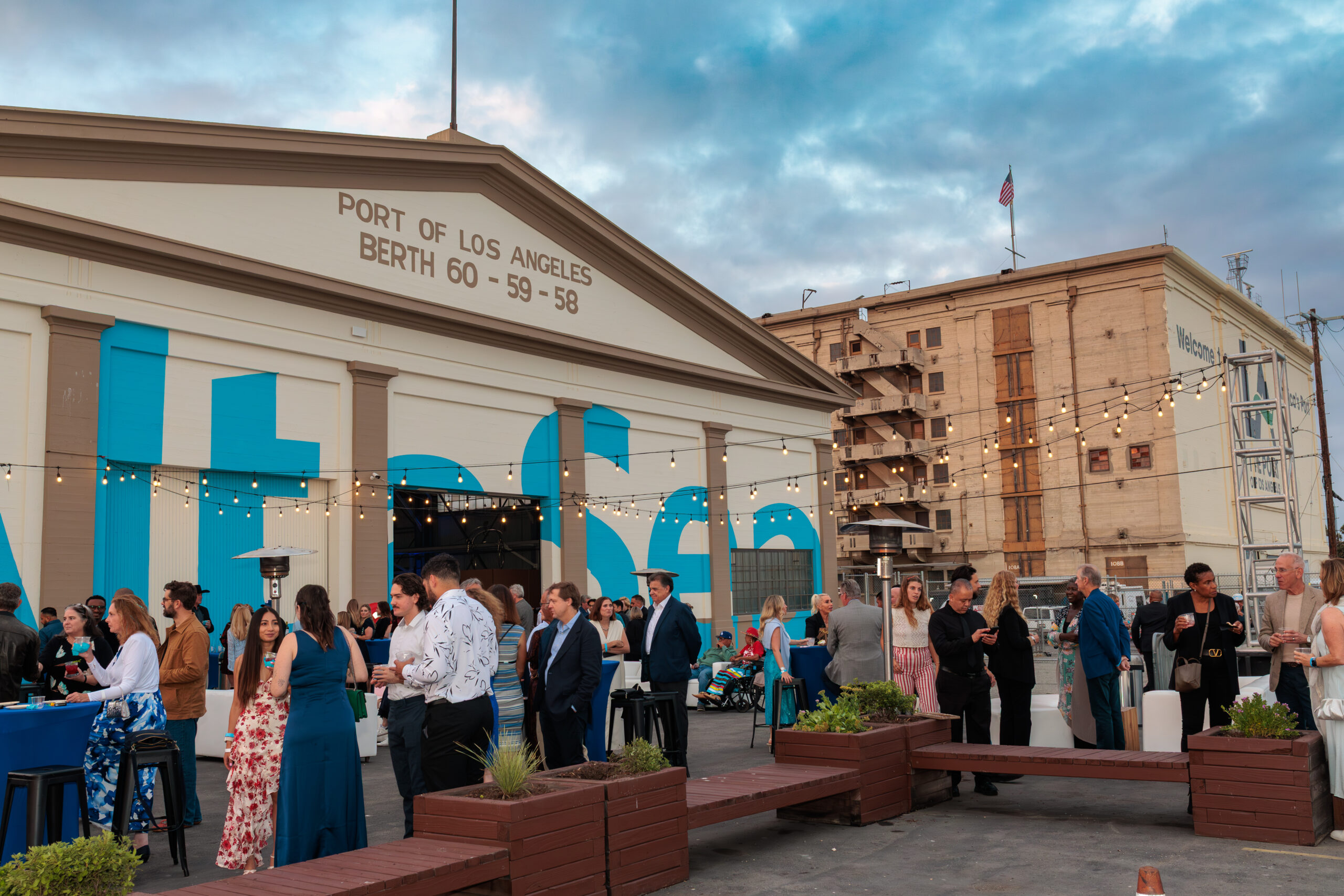
This past weekend, hundreds of people joined us on the AltaSea campus for Blue Hour 2025. The focus of this year’s event was blue foods, and attendees enjoyed catering by local seafood legend Dustin Trani as well as sustainable blue food pavilions featuring delectable ocean-based bites created by both master chefs and culinary students from Harbor College.
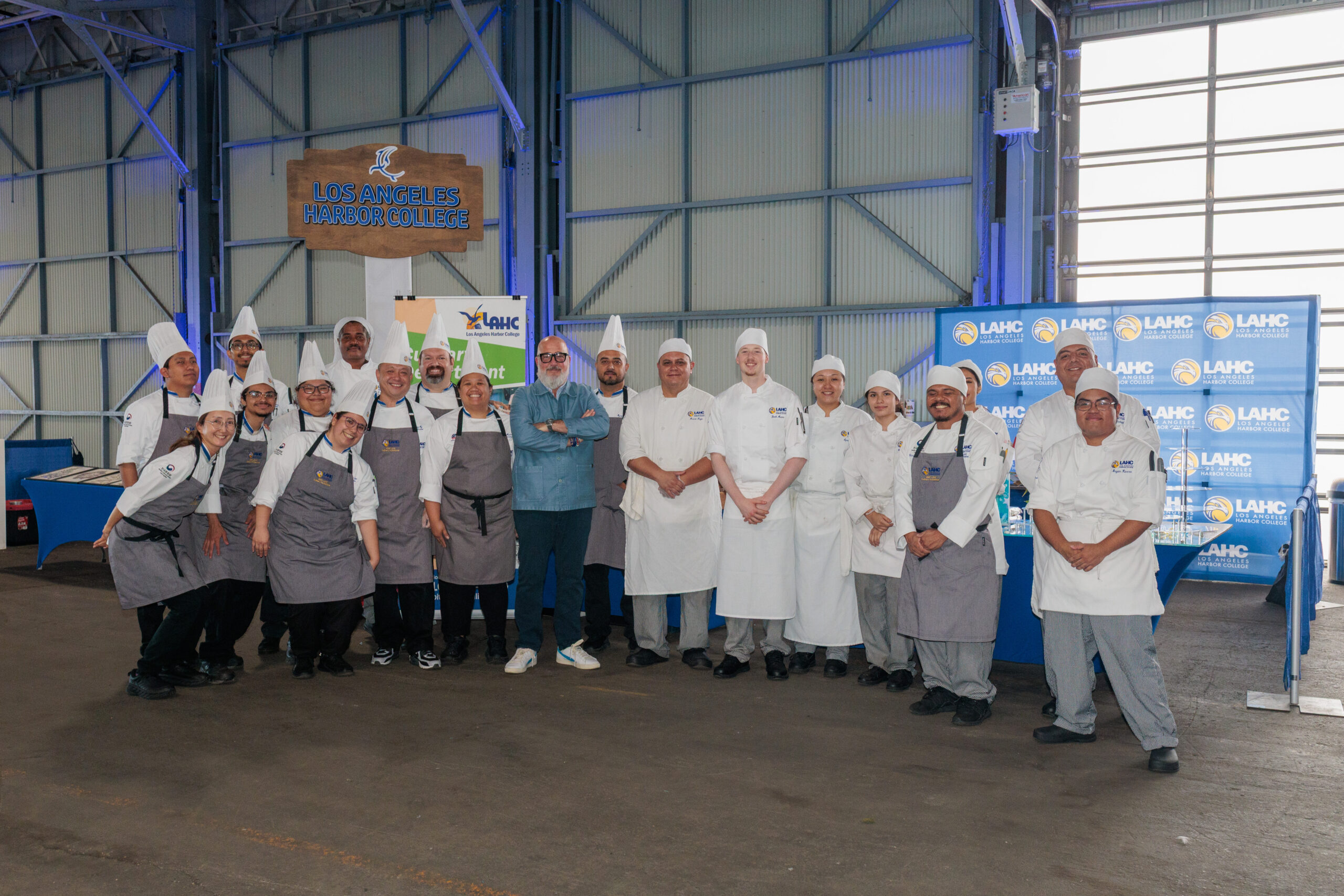
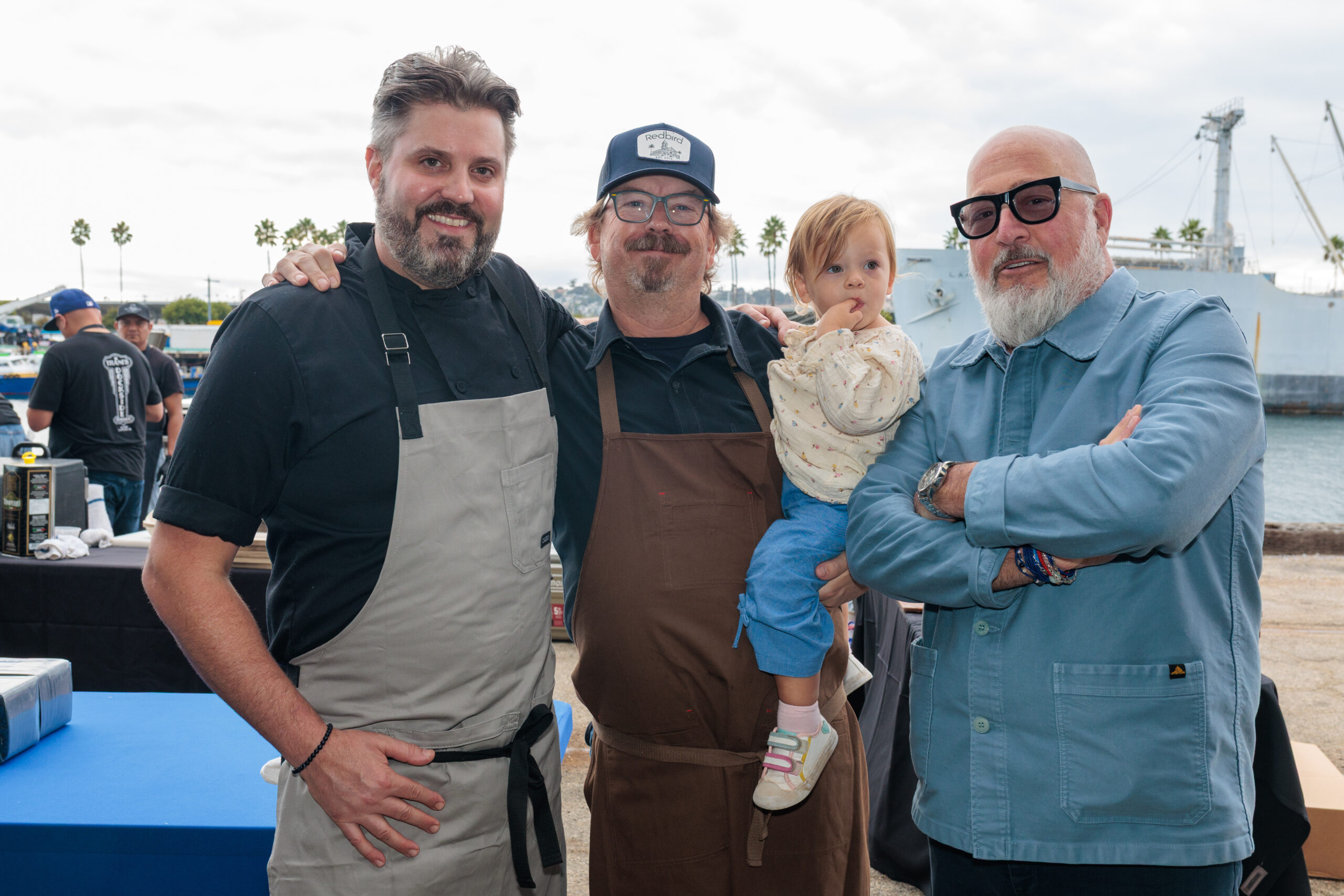
As always, a highlight of Blue Hour was honoring ocean innovators and blue economy trail blazers. This year, conservationist Ashlan Cousteau took the stage to introduce a true visionary in food, culture, and sustainability: Chef Andrew Zimmern. In her words, Andrew represents the very essence of what AltaSea’s Innovation Award celebrates—ingenuity, passion, and a relentless drive to solve pressing global challenges.
Through his Emmy-winning and James Beard Award-winning television shows, Andrew has taken audiences around the world to discover how culinary traditions connect communities and inspire understanding. From Bizarre Foods to What’s Eating America and most recently Hope in the Water, Andrew has used storytelling to shine a light on sustainable seafood, regenerative aquaculture, and the people working tirelessly to heal our oceans while feeding a growing planet. But Andrew’s impact extends beyond television. He has invested in the next generation of chefs through scholarships, served on boards advancing food equity and sustainability, and even helped pass landmark legislation to make food safer and healthier for children. His voice carries from kitchens to classrooms to the halls of government, always with the same message: food can change the world.
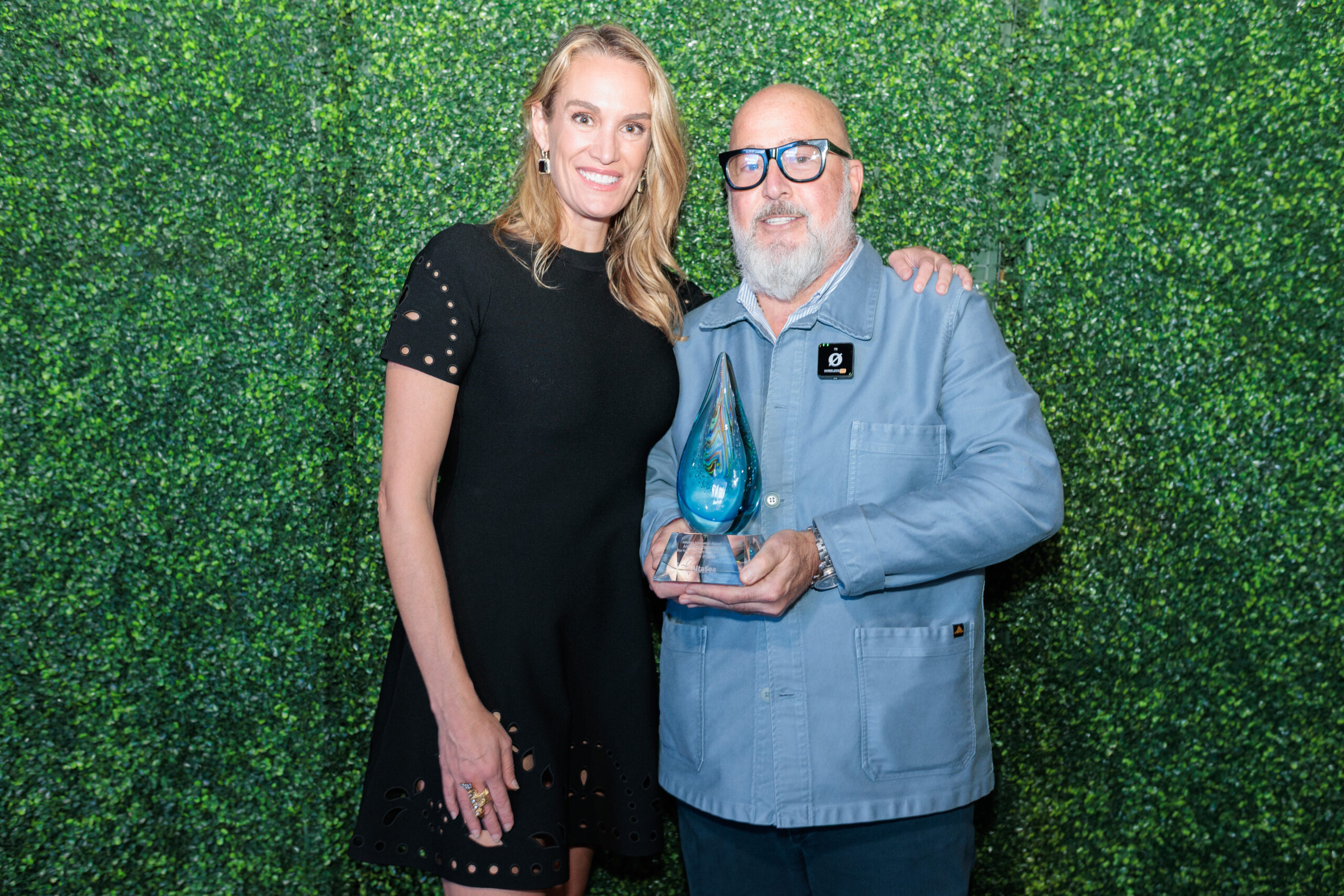
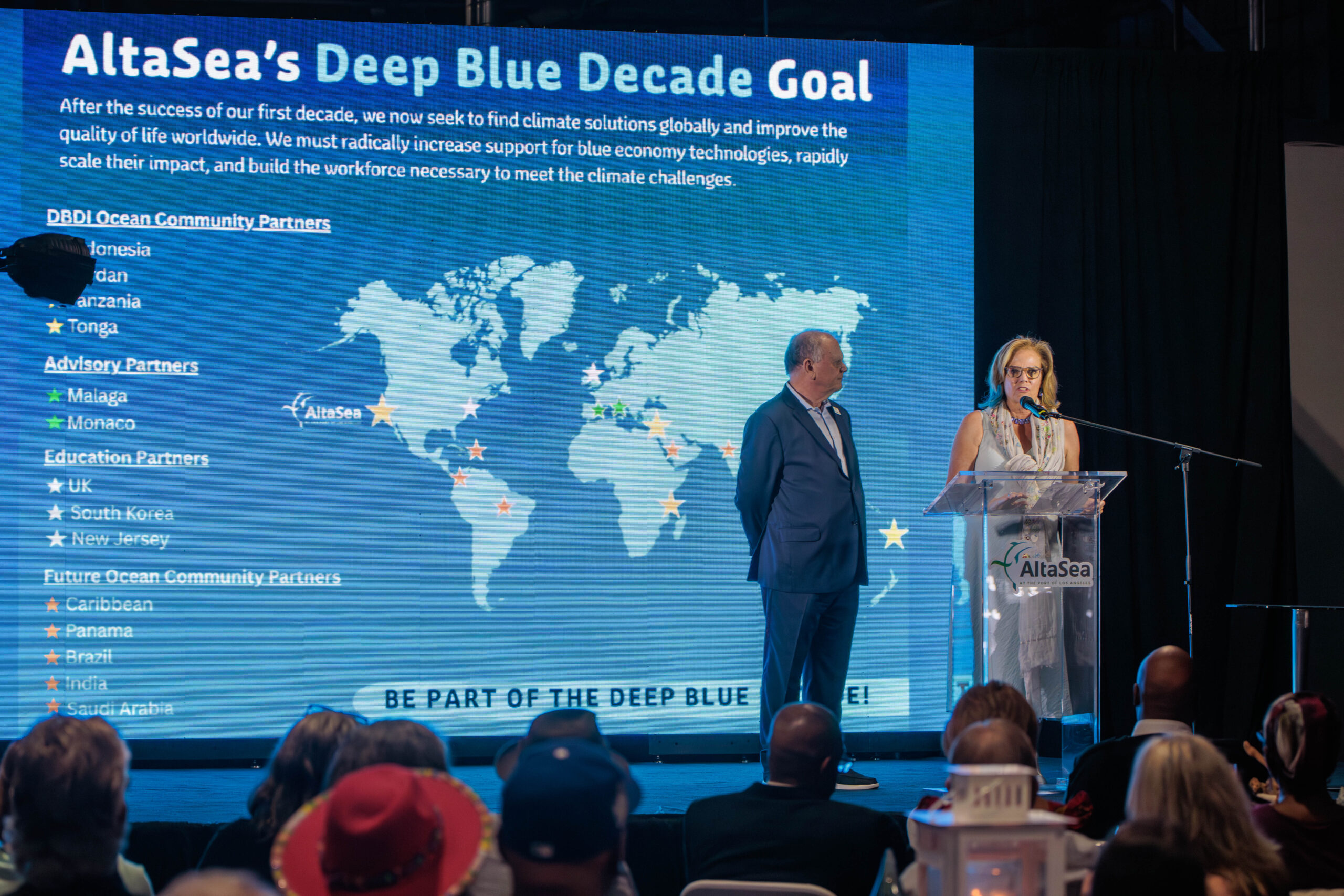
AltaSea is proud not only to honor Chef Zimmern as the 2025 Innovation Award recipient, but also to welcome him as a Special Advisor to our Deep Blue Decade Initiative. And as if that weren’t enough—he has also agreed to return next year, not just as a guest, but as a featured chef at Blue Hour 2026.
Below, we are including a portion of Chef Zimmern’s speech at Blue Hour, because he shares a message of great importance:
AltaSea Innovation Award, Blue Hour
Thank you, AltaSea, for this extraordinary honor. To stand here among such remarkable changemakers is deeply humbling. I also want to thank all my collaborators—business partners, filmmakers, chefs, scientists, activists, colleagues in Minnesota, teams in Los Angeles and New York, and communities like this around the world. And, of course, my friends and family. None of this work happens alone.
I am, at my core, a storyteller. For me, everything begins and ends with a story. My own connection to the sea was primal—I was literally dipped into the Atlantic Ocean a week after my birth. Since then, I’ve spent 25 years documenting ocean stories across six continents. Everywhere I go, fishermen and women tell me the same thing: the water isn’t the same, the fish aren’t the same, the work isn’t the same. The math doesn’t add up anymore. And yet, they keep going—because this is what they love, and this is what they know.
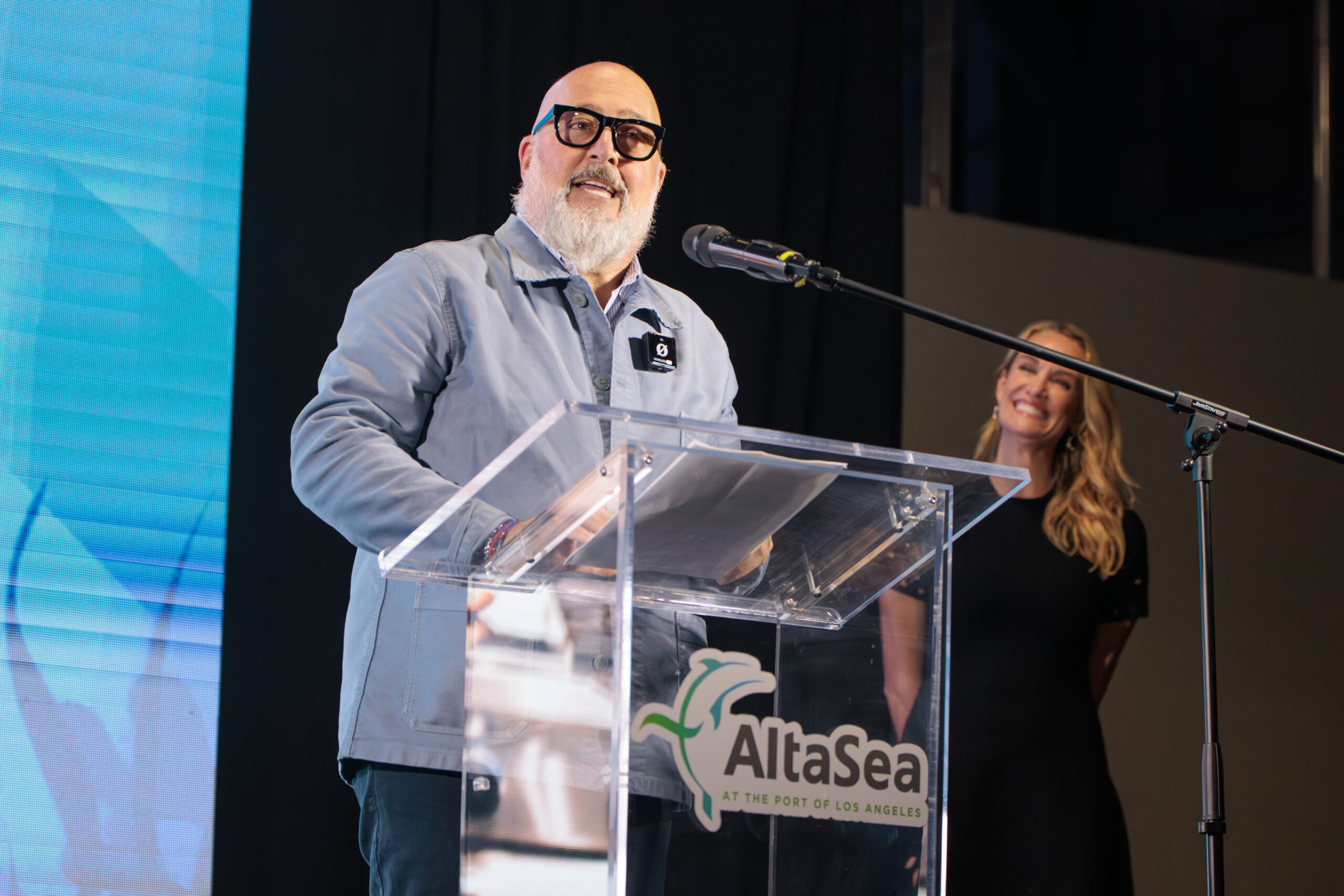
- If we protect just 30% of our oceans by 2030—a global goal within reach—we can safeguard biodiversity, stabilize fisheries, and protect ecosystems that store massive amounts of carbon.
- In Africa, where I’ve been working with NGOs, aquaculture and sustainable seafood initiatives are creating jobs, improving nutrition, and building climate resilience. Imagine coastal nations not only fighting rising seas, but building blue economies that lift millions out of poverty.
- Innovation is exploding—from kelp farming that draws down carbon, to Indigenous stewardship models that balance production with protection, to legislation like the MARA Act that reduces pressure on wild stocks. We already have the playbook. We just need to scale it.
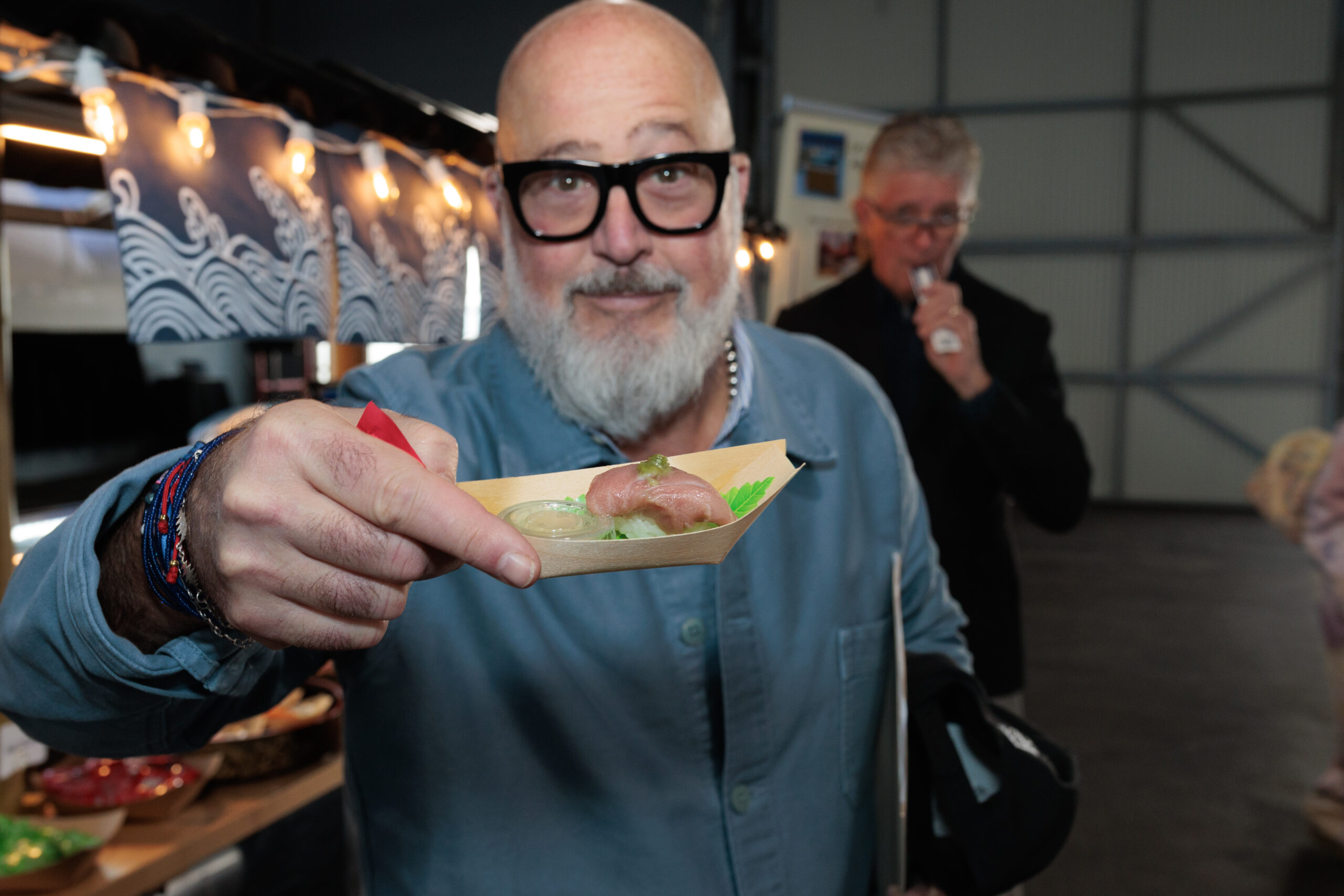
- If you are a philanthropist, double your investment in blue economy solutions.
- If you are a policymaker, fight like hell against budget cuts that threaten our climate future.
- If you are a scientist, partner with storytellers so your breakthroughs don’t remain buried in journals.
- If you are an investor, let’s talk. Strategic capital can solve global problems while creating new markets.
